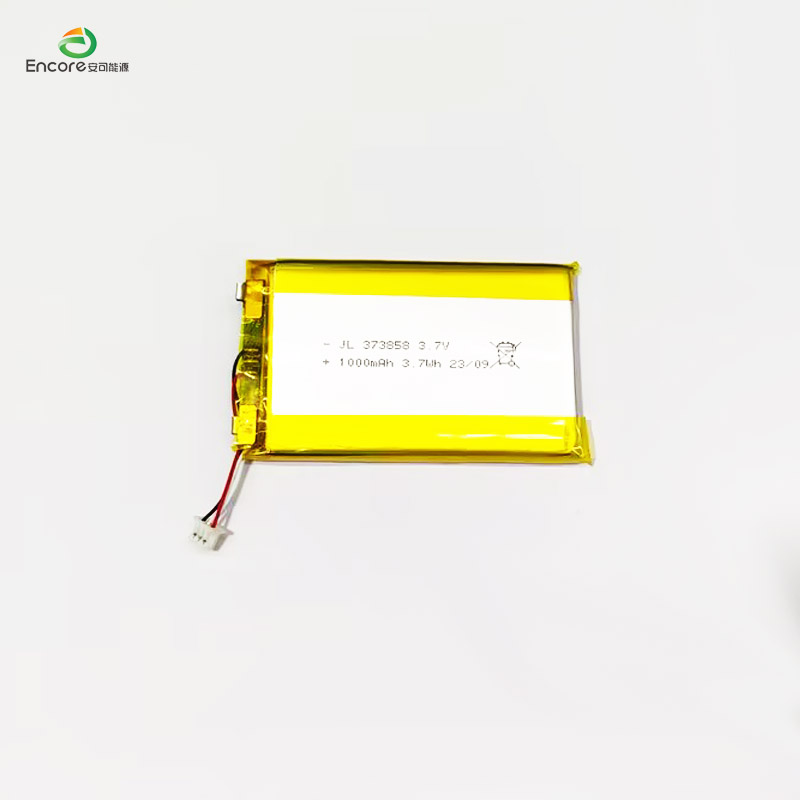The Power of Li-Polymer Batteries: A New Era of Energy Storage
2025-03-26
In today’s world, the demand for efficient, compact, and reliable energy storage solutions is greater than ever. From smartphones to electric vehicles, portable devices to drones, the need for powerful and lightweight batteries is at the forefront of technological advancements. Among the various types of batteries available, the Lithium Polymer (Li-Polymer) battery has emerged as a popular choice due to its numerous benefits. In this blog, we will explore the features, advantages, applications, and future prospects of Li-Polymer batteries.
What is a Li-Polymer Battery?
A Lithium Polymer (Li-Polymer) battery is a type of rechargeable battery that uses a polymer electrolyte instead of the liquid electrolyte found in traditional lithium-ion batteries. The polymer electrolyte can be a solid or gel-like substance, which allows the battery to be more flexible and lightweight compared to its counterparts. Li-Polymer batteries are commonly referred to as "LiPo batteries" and are known for their slim, compact design and high energy density.
The technology behind Li-Polymer batteries is based on the same principle as lithium-ion batteries, where lithium ions move between the anode and cathode to charge and discharge the battery. However, the key difference lies in the electrolyte, which provides Li-Polymer batteries with distinct advantages, especially in terms of safety, flexibility, and energy efficiency.
Key Advantages of Li-Polymer Batteries
1. Lightweight and Compact Design
One of the most significant advantages of Li-Polymer batteries is their lightweight and compact design. Thanks to the use of a solid or gel-like polymer electrolyte, these batteries are generally smaller and lighter than traditional lithium-ion batteries. This makes them ideal for applications where space and weight are critical, such as in smartphones, drones, wearables, and electric vehicles.
2. Flexibility in Shape and Size
Li-Polymer batteries can be made in various shapes and sizes to fit specific requirements. This flexibility allows manufacturers to design batteries that can fit into tight or unusual spaces, such as in thin devices or curved surfaces. Unlike traditional batteries, which are usually confined to a specific shape (such as cylindrical or prismatic), Li-Polymer batteries can be customized for a wide range of applications.
3. Improved Safety
Safety is a top concern when it comes to energy storage, and Li-Polymer batteries have a clear advantage over other types of batteries in this regard. Because they use a solid or gel-like electrolyte instead of a liquid one, Li-Polymer batteries are less prone to leakage or spilling, which can reduce the risk of dangerous situations such as fires or explosions. Additionally, Li-Polymer batteries are more resistant to swelling and deformation, which is a common issue with liquid electrolyte-based batteries when they are overcharged or damaged.
4. High Energy Density
Li-Polymer batteries have a higher energy density compared to many other battery technologies. This means that they can store more energy in a smaller space, making them ideal for applications that require high power output in a compact form. For instance, smartphones, laptops, and electric vehicles benefit from the ability to use Li-Polymer batteries to power their advanced features without compromising on size or weight.
5. Longer Battery Life
Li-Polymer batteries typically offer longer cycle life compared to other types of rechargeable batteries. This means that they can be charged and discharged many times without a significant loss in performance. As a result, Li-Polymer batteries are well-suited for devices that require frequent charging, such as mobile phones, drones, and wearables.
Applications of Li-Polymer Batteries
1. Consumer Electronics
Li-Polymer batteries are widely used in consumer electronics due to their compactness and high energy density. Devices such as smartphones, tablets, laptops, and portable power banks rely on these batteries to deliver long-lasting power in a lightweight package. The flexibility of Li-Polymer batteries also allows manufacturers to create slimmer, sleeker designs without sacrificing performance.
2. Electric Vehicles (EVs)
The electric vehicle industry has been one of the major adopters of Li-Polymer batteries. These batteries provide a high energy density that allows electric vehicles to achieve longer ranges with lighter batteries. Furthermore, the flexible design options offered by Li-Polymer batteries allow manufacturers to optimize battery placement and design, leading to more efficient and aesthetically pleasing EV models.
3. Drones and UAVs
Li-Polymer batteries are the go-to power source for drones and unmanned aerial vehicles (UAVs). These applications require batteries that are lightweight, compact, and capable of delivering high power for extended flight times. Li-Polymer batteries meet these requirements by offering excellent energy density and high discharge rates, allowing drones to fly longer distances while maintaining stability and performance.
4. Wearables and Smart Devices
Wearable devices, such as smartwatches, fitness trackers, and wireless earphones, have become increasingly popular in recent years. These devices require small, lightweight batteries that can power advanced features like GPS tracking, heart rate monitoring, and touchscreens. Li-Polymer batteries fit perfectly into these applications due to their slim design, long battery life, and high energy output.
5. Renewable Energy Systems
Li-Polymer batteries are also being used in renewable energy storage systems, such as solar energy storage and backup power solutions. Their high energy density makes them suitable for storing energy generated by solar panels, ensuring a consistent power supply even when the sun isn't shining. As the demand for sustainable energy solutions continues to grow, Li-Polymer batteries are expected to play an increasingly important role in the energy sector.
The Future of Li-Polymer Batteries
The demand for Li-Polymer batteries is expected to grow significantly as new technologies and industries emerge. As more devices become smaller, lighter, and more power-hungry, the need for advanced energy storage solutions will continue to rise. The development of new materials and improved manufacturing processes will likely make Li-Polymer batteries even more efficient, longer-lasting, and affordable in the future.
Additionally, the shift towards electric vehicles and renewable energy sources will drive further innovations in battery technology. Li-Polymer batteries, with their high energy density and customizable design, will be crucial in meeting the energy storage requirements of these industries.
Conclusion
Li-Polymer batteries are an innovative and versatile energy storage solution that has already transformed industries ranging from consumer electronics to electric vehicles. Their lightweight design, high energy density, safety features, and flexibility make them an ideal choice for modern technologies that demand efficient and compact power sources. As the world continues to evolve towards smarter, more energy-efficient solutions, Li-Polymer batteries will play an essential role in powering the devices and systems that drive our daily lives.



